Tue, 23 May 2023
 The book I wanted and needed to read. Repeatedly, indirectly and directly women and the entire society at large are told that aging is bad, and it is especially an unwelcoming reality for women, but is this true? Fashion Director for The Times London since 2015 Anna Murphy recently turned 50, and in her new book (being released on May 30th in the states; in the UK it was released in March) Destination Fabulous: Finding your way to the best you yet, disagrees wholeheartedly with this false truth that women have begrudgingly or willingly accepted and explains exactly how each year, each decade can usher in more fulfillment, more life satisfaction and thus more contentment. She joined me from London last week before heading down to Mexico to take in Dior's Cruise presentation, and we had a lovely conversation about everything from the benefits of doing the hard work of getting to know yourself, how your style can bust clichés, the benefits of being age agnostic, how living our best life does physically affect our skin and visage, as well as the false promises made my anti-aging procedures, plus so much more. We begin our conversation with why she is the happiest she has ever been, and with that, I will encourage you to tune in to our conversation. I do hope you enjoy. Links Mentioned in the episode
 Follow Anna Murphy's work on the following channels:
~Pick up Destination Fabulous: Finding your way to the best you yet by Anna Murphy (2023) 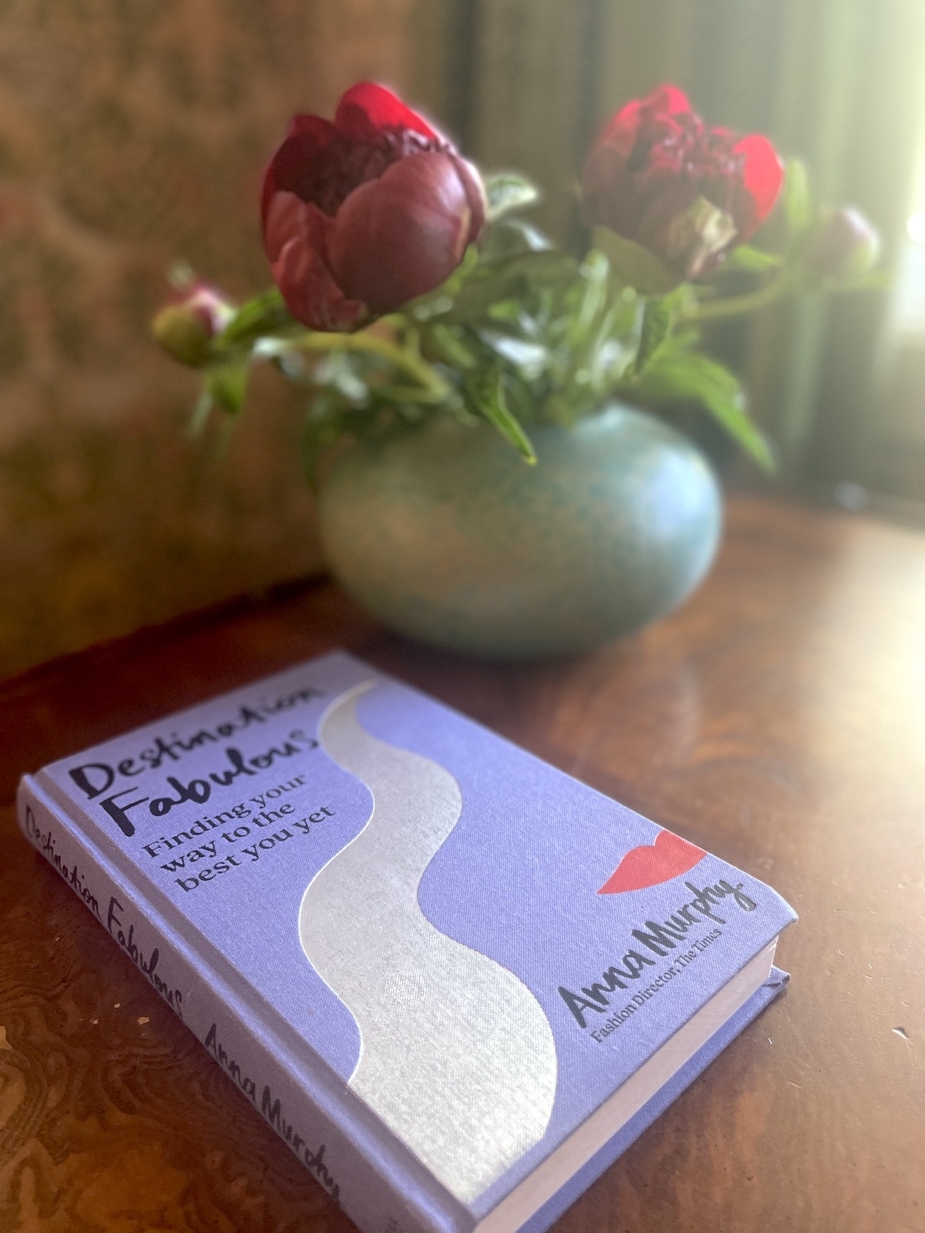 Anna Murphy's book was the inspiration for a Monday Motivational post shared earlier this month.
~Explore more episodes of The Simple Sophisticate here. ~Explore more British-inspired episodes here. ~Explore more Signature Style posts here
Explore all Previously posted content from TSLL's 5th Annual British Week
 Images courtesy of the author and The Times, London |
Tue, 16 May 2023
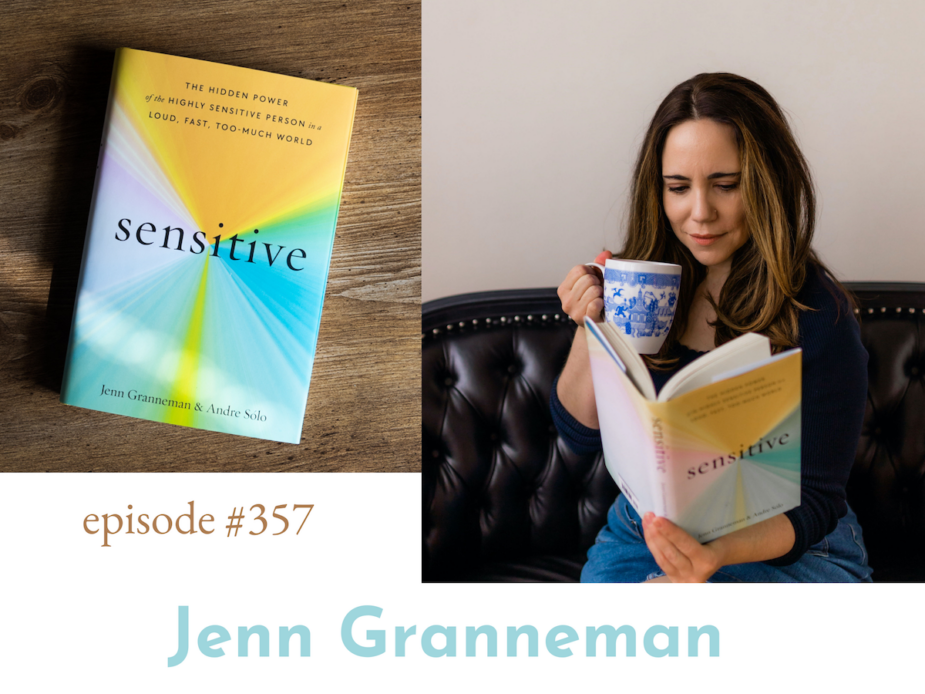 Being a Highly Sensitive Person (HSP) is a fairly new identifier to describe anyone who is highly responsive to their environment. This high responsiveness can appear in a variety of ways and different arenas of our lives - physically, emotionally, in relationships, simply going about our days and interacting with the world around us. In 1996, American clinical research psychologist Dr. Elaine Aron wrote her seminal book The Highly Sensitive Person: How to Thrive in a World That Overwhelms You, and it was in this book that term HSP was coined. Author Jenn Granneman joins me to talk about her new book on this topic of HSP, a book that includes new research that furthers supports Dr. Aron's findings, as well as exploring history revealing that this gift has always been with us, we just didn't identify it until recently, and welcoming in specific insights and tools to elevate this awesome gift that can indeed deep the quality of our entire life. Jenn Granneman's book, who she co-authored with Andre Sólo, Sensitive: The Hidden Power of the Highly Sensitive Person in a Loud, Fast, Too-Much World was released on February 28, 2023, and quickly became a bestseller in the category of Popular Psychology Studies and was recently chosen by Amazon's editor's as the Editor's Pick for Non-Fiction. Today she joins me to talk about what HSP is, the misconceptions, how being HSP is actually a source of strength, how to approach relationships and the work place as well as talking about why she hopes this book starts a Sensitive Revolution.
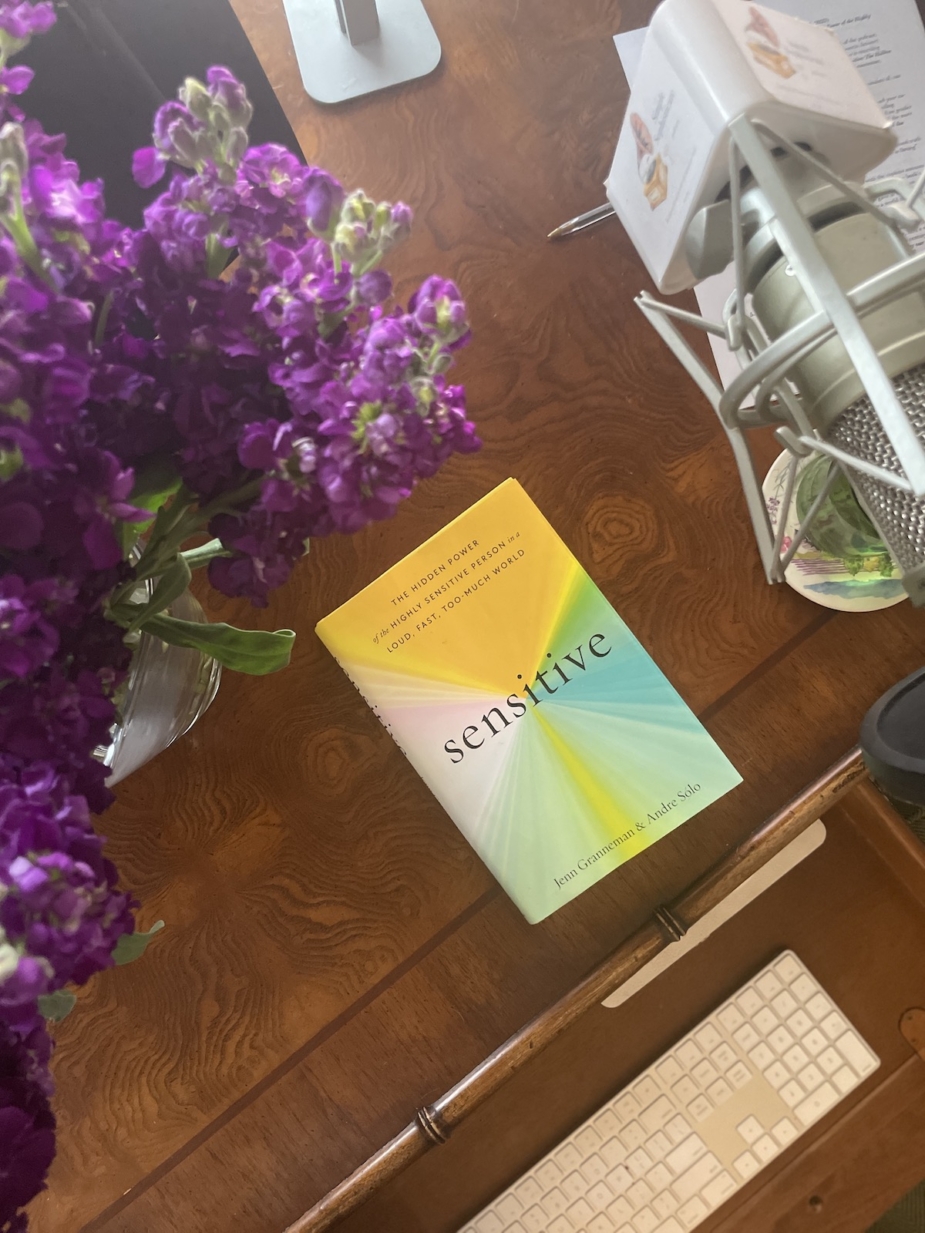 ~Explore the book: Sensitive: The Hidden Power of the Highly Sensitive Person in a Loud, Fast, Too-Much World by Jenn Granneman and Andre Sólo~ Explore Jenn Granneman's websites on HSP and Introversion below, as well as other links you might be interested in:
~Explore more episodes of The Simple Sophisticate podcast |
Tue, 2 May 2023
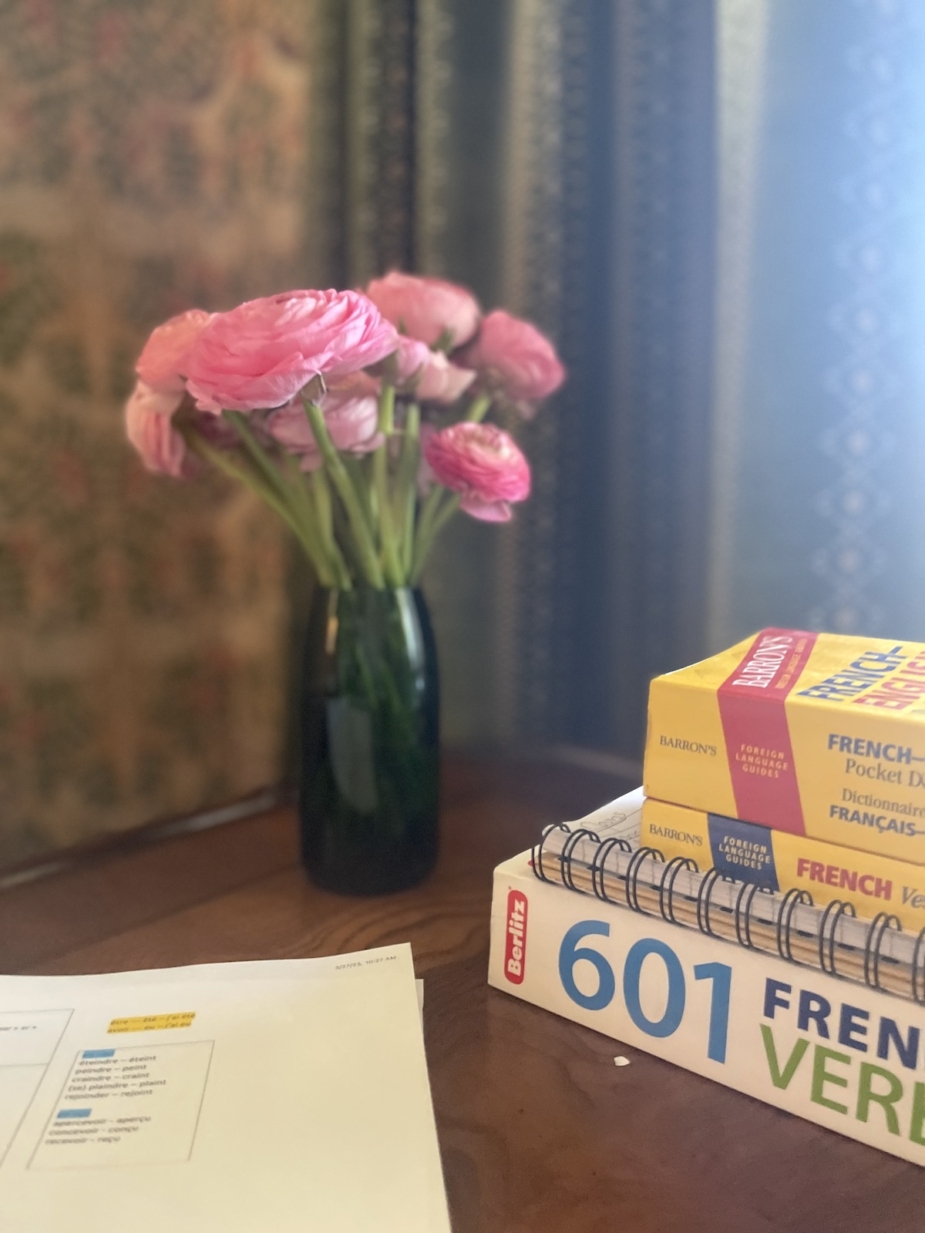
"N'ayez pas peur." And the formal lessons continue into the wilderness and beauty of the French language. Or should I say langue française. And yep, we have just dove into to learning the imperatif form, and as the command directs above in French - Have no fear! Which is a great place to start because when we choose to learn a new language, especially as an adult, and anyone proficient in any field other than the French language, humility must be brought with us on the journey. To trip over any new language we wish to learn, or any new skill for that matter, is a practice in being vulnerable, and being vulnerable is scary. It's scary to try to form the words and say them outloud, even if we have practiced and know the alphabet of our new language. It is scary to bravely raise our hand and attempt to answer a question when we know the answer may be a direct and frank 'no' from the professor. And it is scary to keep raising our hand, to keep speaking the new language, after we have mispronounced and incorrectly answered in the past which is why, it is imperative to hold this directive with us as we choose to learn - Have no fear. After all, what is there to be afraid of really? This is when we need to set our ego aside, take the many (many!) corrections from the professor and just keep trying, just keep speaking and gradually, ever so very gradually, improvements and a depth of understanding as our long-term memory begins to hold this new language in its arsenal of knowledge it draws upon when we least expect it to be easy to grasp, the new language becomes easier. I write the words of encouragement for you, readers and listeners of the blog and podcast as much as I write them for myself because it is a slow journey, but all of a sudden, I will find myself in moments grasping and understanding what to say and how to say it when in the past such an occurrence would never happen. And it is in these moments, I know that the regular effort, vulnerability and bravery (and mental exhaustion) are worth it and are paying off. Today, we return to the series of what I have learned so far in French class. A journey that began in 2016 as I shared in Part Quatre just a couple of months ago (visit that post/episode #349 here) and is continuing as I begin FR 104 (A2.2) with Washington D.C. Alliance de Française having begun with them FR 101 in September 2022. Part Quatre brought us to the mid-way point of FR 102, so today's episode will focus on what I have learned as FR 102 concluded and all of FR 103 which wrapped up in mid-April. Admittedly, FR 103 is when I felt I was in brand new territory as up to 102 I had a clear awareness of present tense, the numbers, basic 'get to know you' phrases, and had been exposed to the components taught, but needed to polish them as well as fill in a few of the fundament gaps (proper pronunciation of the alphabet for example!). So now I am in the thick of new knowledge, and my head is exhausted each week, following each day of classes (two, two hour classes each week). However, well, I am getting ahead of myself. Let's take a look at the list of what I have learned so far in French class . . . 1.The mental exhaustion improves with time As I shared above, when FR 103 began, with a new professor who has high expectations and uses every minute of class, after each week and each class, my mind was exhausted; however, that was the worst of it. In other words, my mind was working in a way it had not, and therefore, had to 'get into shape' by being stretched. Now, yes, I still have mental fatigue, but part of me is used it, but the other part of me knows, my mind as it pertains to learning the French language, is getting better toned and used to searching, remembering and applying the new knowledge. All the more reason to hang in there and keep attending class, keeping signing up for the next class.
2. Être, Avoir, Savoir, & Vouloir are the only verbs that are irregular in the imperatif As hinted at above in the opening quote, we've begun learning the form and function of the imperatif! And it is really quite simple, especially when I discovered (and it makes sense logically) that there are only ever three forms of the imperatif for conjugation (tu, nous, and vous), and so long as you know your Present tense forms, and memorize the four new irregular forms of être (to be), avoir (to have), savoir (to know) and vouloir (to want), you know how to properly use/write/speak the imperatif! What is the imperatif? The exact same thing imperative is in the English language, a command or direction given with an understood subject (so the sentence begins with the verb).
3. How to communicate time properly (formally and informally) A simple concept, but knowing how to form a sentence when asked the time is slightly different compared to English, but it is quite simple. The key is to remember to once you begin speaking the time formally (military time) to continue to do so - only numbers, no phrases; and when you speak heure informelle, then you can use the common phrases - midi (noon), minuit (midnight), moins le quart (less than a quarter - 15 minutes), et demi (half past), etc.
4. What "liaision" and "enchaînement" are as they pertain pronunciation in the French language Large, odd words, but all they are, and they are very important if we want to pronounce the language correctly, is how the sound of the word changes due to the words around it.
5. How to construct passé composé Finally learning the past tense (aka the passé composé) was a big step in my learning journey of the French language. And it is soooooo much simpler than I had anticipated. While I won't teach the entire lesson to you, the key is knowing that every single conjugated verb will be preceded by either être (conjugated to fit the form) or avoir (conjugated to fit the form), and there are only approximately 15 verbs that use être (simply memorize them), and the reset all use avoir. Below are the fifteen verbs that use être, and how I remember them is they are all verbs in which they describe a change of state or motion. Now do note, not EVERY verb that involves motion or a change of state uses être, but all of these in this list fit that definition.
And then, the verb that follows has a fixed ending for all forms (je, tu, il, elle, on, vous, nous, ils/elles, which comes down to memorizing, but most, if they have a certain ending in the infinitive form (i.e. -er, -ir, etc.) end in the same ending for that form. For example, my list captured in the image below:
6. Passé composé is easier than I thought and gives me so much flexibility in constructing phrases It is worth reiterating that again, what I thought prior to learning was incorrect. I just needed to be taught by someone who knew the language. Once I had the knowledge, great progress in communicating was made and ease experienced knowing I could share what I had done in conversation, whatever that may be!
7. Positive encouragement and praise are wonderfully powerful no matter what the student's age
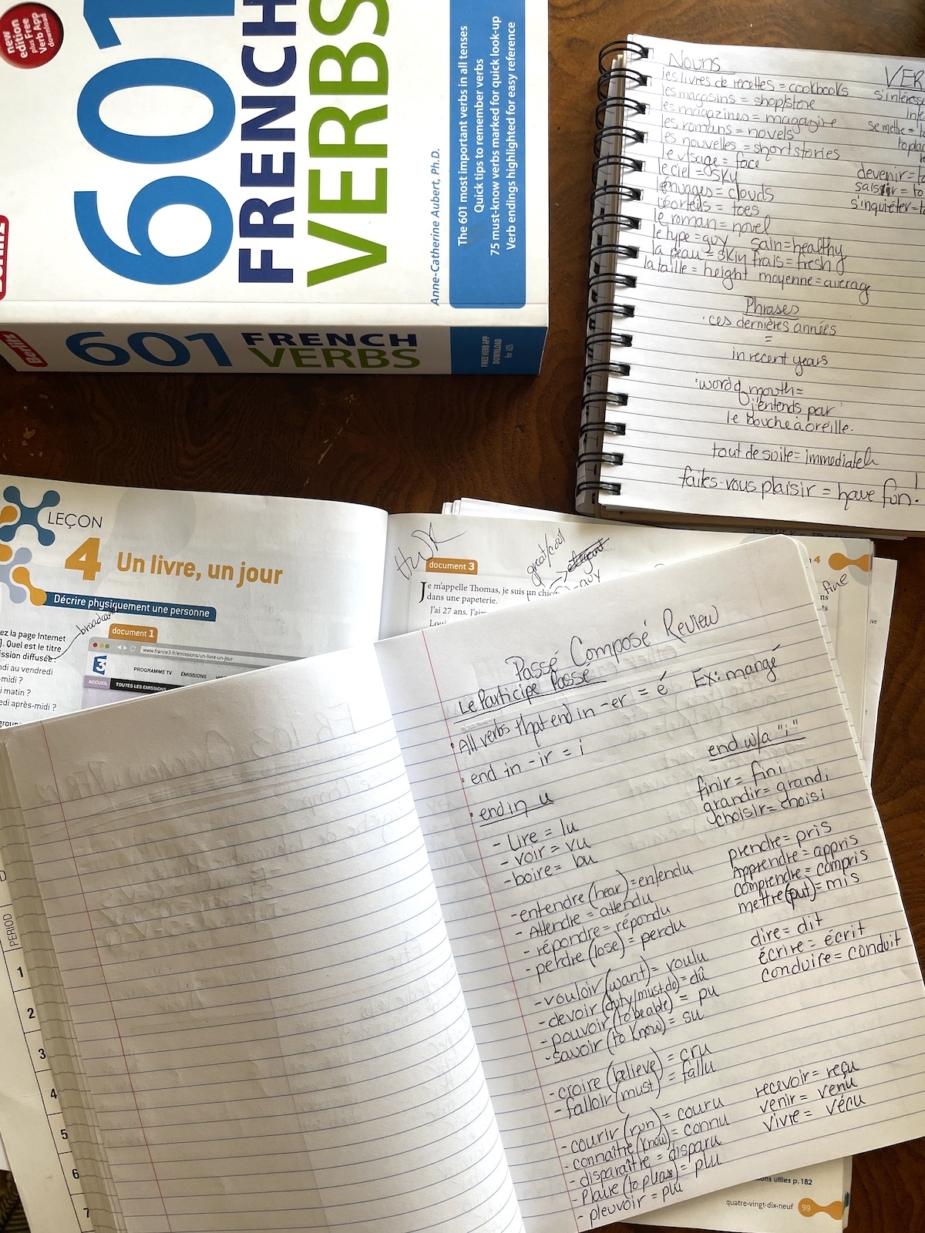 It has been a fascinating experience being a teacher who taught for 20 years and stepping into someone else's classroom who is the expert on a basic subject - the fundamentals of a language. Apart of the skills they are teaching and I am trying to learn, the energy and connection a teacher brings to the space determines the probability of their students remaining in the class, believing they can do it and the confidence to try. As well, a teacher is a human being, and it is easier to notice when my professor is exhibiting an immense amount of patience, restraint and strength to keep us accountable, so I empathize and try to be aware that she will have good days and not so good days, but what I appreciate about my current professor is that she wastes not one minute of our class time, and is determined to teach us the language. There are moments when it is clear that teaching a lower-skilled class to students such as myself and being someone who knows the French language superbly as my professor does, gets to be a bit 'why don't you know this?!' at times, and whether through their repetition of the skills we are just being introduced to, her patience is a bit lacking and I know that for my confidence in learning the language, I could use a bit more acknowledgement of my effort and willingness to try to speak out or try to speak. However, in those moments, it is also a very helpful exercise for myself to set my ego aside and dig down and choose to learn than to take it personal. After all, I can honestly say, she is the best and most knowledgeable and capable of explaining the language clearly professor that I have had in my 20+ years of trying to finally learn this beloved language, and I am grateful these classes and the quality of classes are available.
8. Le Passé Recent While we just received a taste of how to construct the recent past (le passé recent), so anything that has just happened, seeing the formula for how to construct the phrases, knowing that all it is is the simple formula: use the verb Venir (to come) in the present tense + de + le verb de l'action a1 l'infinitif form, reminds me that I simply need to bulk up my knowledge of vocabulary with a variety of verbs I might need or use.
9. Hearing the language spoken first without the transcript is key to eventually (and more quickly) comprehending what you are hearing, even if it is more uncomfortable initially When FR 103 began with my new professor, she quickly told us (gently scolding us) to not look at the transcript when we were listening to passages that we were trying to decipher what was being said. I can remember in FR 101 being so perplexed that other students were able to easily understand what was being said on the first go-round and even stating my confusion in class, but what I didn't realize was that they were reading the transcript as they listened and the professor had not told them not to, so why not? Not the case in FR 103. Our professor - Olga, pointed out emphatically that if we are going to understand what we are hearing more quickly, we need to first hear it (without peeking at the transcript), struggle with what we hear, and similarly to the mental fatigue that is intense initially, it become easier more quickly than we might realize. Needless to say, lesson learned. Nobody is looking at the transcripts anymore and struggle with audio comprehension is expected, so long as we try.
10. Just 10 minutes a day of studying, everyday, is better than hours sporadically Another quick tip Olga shared with us was to make sure we practice or study at least 10 minutes each day on the days we don't need to complete any homework or in between class sessions - our two week breaks, for example. As opposed to studying intensively for a couple of hours, but not doing so regularly, we will actually acquire the language more quickly through consistent, short efforts.
11. Phrases for moving a story along chronologically
12. Vocabulary for frequencies of occurrence (la fréquence) et l'habitude
13. Reflexive verbs aren't as scary as they seem FR 103 began with reflexive verbs. A verb whose direct object is the same as its subject. For example, se lèver (to wake up); se doucher (to take a shower/wash oneself); se brosse les dents (to brush one's teeth); se coucher (to go to bed); se preparer (to prepare oneself). Once I learned where the reflexive pronoun (me, te, se, etc.) needed to go in the formation of the sentence, and in negated sentences, it was just a matter of remembering the reflexive verbs.
Simply by writing out these lessons has been helpful to remember all that was covered over the past two+ months, and now the journey continues forward. And while of course, there is guaranteed to be times in which I scrunch my forehead up and scream inside because it isn't coming quickly or at all, I also know that at the end of each class, I am grateful I am there. I am proud of myself for trying, and over-archingly I am following the directive seen below in the imperatif form, to have fun. Because if there is any class I would want to be enrolled in right now to learn something new, it is the French language, so I know I am exactly where I want (and need) to be. "Faites-vous plaisir." Look for Part Six late this summer. Merci pour la visite! À la prochaine, bonne journée!
SIMILAR EPISODES YOU MIGHT ENJOY
episode #276, The Art of Mise en Place 
episode #248, 12 French (or Set in France) Feel-Good Films I Love (having premiered in the past 10 years)  ~Explore all of TSLL's French-inspired posts and episodes.
Petit Plaisir —Chevalier, film
 ~Explore all of the episodes of The Simple Sophisticate podcast here. |
The Simple Sophisticate - Intelligent Living Paired with Signature Style

Categories
lifestylemoney
fashion
general
food
relationships
beauty
holidays
style
decor
etiquette
technology
dating
clothing
news
happiness
health
finances
self-help
feminism
french living
communication
inspiration
self-improvement
cooking
French-inspired
podcast
travel
entertaining
Archives
AprilMarch
February
January
December
November
October
September
August
July
June
May
April
March
February
January
December
November
October
September
August
July
June
May
April
March
February
January
December
November
October
September
August
June
May
April
March
February
January
December
November
October
September
August
July
June
May
April
March
February
January
December
November
October
September
August
July
June
May
March
February
January
December
November
October
September
August
July
June
May
April
March
February
January
December
November
October
September
August
July
June
May
April
March
February
January
December
November
October
September
August
July
June
May
April
March
February
January
December
November
October
September
August
July
June
May
April
March
February
January
December
November
October
September
August
| S | M | T | W | T | F | S |
|---|---|---|---|---|---|---|
| 1 | 2 | 3 | 4 | 5 | 6 | |
| 7 | 8 | 9 | 10 | 11 | 12 | 13 |
| 14 | 15 | 16 | 17 | 18 | 19 | 20 |
| 21 | 22 | 23 | 24 | 25 | 26 | 27 |
| 28 | 29 | 30 | 31 | |||
Syndication



